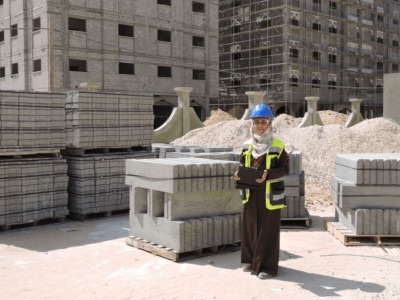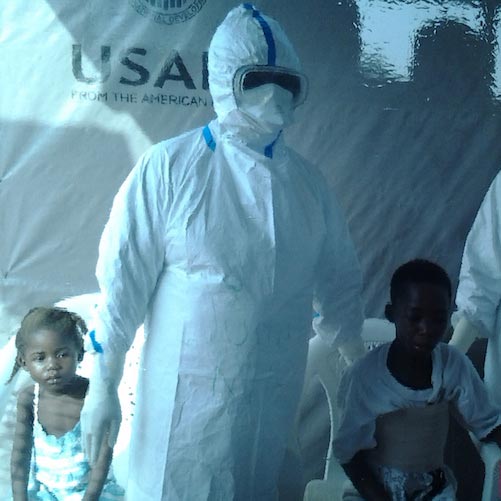Gaza Salwa Nassar

Together we work day by day and try to establish a new peace for all
Working as a civil engineer here is challenging, not least because it’s a gender-sensitive work environment. Construction sites are considered as a workplace suitable for men, only, where women’s roles are limited and I was given the opportunity to prove myself. What I find most rewarding is seeing the proud look on people’s faces – women in particular – when they see me supervising works on the ground. I really believe that women civil engineers, here, are proof that women can do anything.
Regardless of gender, there are other obstacles faced by all engineers working in Gaza. This could be considered as one of the harshest places to work in the world, thanks to the embargo and travel restrictions. For example, it’s very difficult for a site engineer like me to be confident that work at the site will go according to schedule. There are various reasons for this. Maybe it’s because there is no cement in stock, because no shipment came due to closure. Things are very unpredictable. Nobody knows what’s going to happen tomorrow and whether shipments of materials will be allowed in. So, we use unusual measures, such as purchasing the entire quantity of the project’s materials – not ideal for the budget plan but then we know that work can be done. Other measures include altering the project’s timetable frequently in order to cope with the unusual situations we find ourselves in.
I think one of my proudest achievements is being a TechWomen Emerging Leader; I was selected to represent my country in the STEM field/ Engineering sector in 2014. It’s an exchange and development programme that encourages talented women from all backgrounds to achieve their full potential. It was such a fulfilling experience. I worked with a San Francisco construction company and our project was to construct three green buildings. I think it really brought out my spirit of adventure and created a broad open mindedness to learning new experiences. Taking part in this programme made it possible for me to return home to Gaza and share the modern methods in my industry with colleagues and local institutions – those who are often deprived of easy travel and communication with the outside world.
It’s difficult to know what will happen in Gaza. We don’t know what conflict is looming or when the closure will end. Together we work day by day and try to establish a new peace for all. We need to rebuild our country and we need to be hard working in all fields, not just science and maths and engineering. We need to work hand in hand to build our country.
I know that Palestinian women are capable of so much. It shouldn’t just be part of the community getting involved in the rebuilding. It should be everyone. If you are teaching a woman or a girl, then you are teaching a family. If you are teaching a neighbourhood, you can teach a country.
STORIES FROM
EAST AFRICA
Celestine Olale, Liberia
Head Nurse,
Ebola Treatment Units
